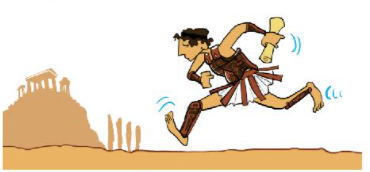there was aconflict between regional _ _ _ national interets (từ này có 3 chữ)

Những câu hỏi liên quan
The legal system is based on ………………………………….(compel)
4. Her ……………………………………..with Jim lasted many ages.(correspond)
5. There was a conflict between ……………………………..and national interests.(region)
6. His first speech as the president made a strong ________ on his audience.(impress)
Finished? Think of more differences between life 100 years ago and now. Use there was, there were, was and were.
(Nghĩ thêm sự khác biệt giữa cuộc sống cách đây 100 năm và bây giờ. Sử dụng there was, there were, was và were.)
100 years ago,
(cách đây 100 năm)
- there wasn't any computer.
(không có máy vi tính.)
- there weren't many tall buildings.
(không có những tòa nhà cao tầng.)
- there wasn't any smart phone.
(không có điện thoại thông minh.)
- the roads were rough and difficult to walk on.
(đường gập ghềnh khó đi.)
- life was hard and facility was poor.
(đời sống khó khăn và cơ sở vật chất nghèo nàn.)
Đúng 0
Bình luận (0)
Ex 4: Rewrite the following sentences, using the words given1, There was a cinema here two years ago. (use to)2, I cried a lot when I was a child. (use to)3, The distance between my house and school is about 1km. (It)4, What is the distance between Lao Cai and SaPa? (Far)5, Although the weather was bad, they had a wonderful holiday (In spite of)6, Nam took a taxi, but he arrived late for the concert. . (However)7, Although the traffic turned red, he didn’t stop his car. (However)8, Although we...
Đọc tiếp
Ex 4: Rewrite the following sentences, using the words given
1, There was a cinema here two years ago. (use to)
2, I cried a lot when I was a child. (use to)
3, The distance between my house and school is about 1km. (It)
4, What is the distance between Lao Cai and SaPa? (Far)
5, Although the weather was bad, they had a wonderful holiday (In spite of)
6, Nam took a taxi, but he arrived late for the concert. . (However)
7, Although the traffic turned red, he didn’t stop his car. (However)
8, Although we walk to school, we arrive school on time. (Despite)
1, There used to be a cinema here two years ago.
2, I used to cry a lot when I was a child.
3, It is about 1km from my house to school.
4, How far is it from Lao Cai to SaPa?
5, In spite of the bad weather, they had a wonderful holiday
6, Nam took a taxi.However, he arrived late for the concert.
7, The traffic turned red.However, he didn’t stop his car.
8, Despite walking to school, we arrive school on time.
câu 1,2 dùng used chứ nhỉ
Đúng 1
Bình luận (0)
Ex 4: Rewrite the following sentences, using the words given1, There was a cinema here two years ago. (use to)2, I cried a lot when I was a child. (use to)3, The distance between my house and school is about 1km. (It)4, What is the distance between Lao Cai and SaPa? (Far)5, Although the weather was bad, they had a wonderful holiday (In spite of)6, Nam took a taxi, but he arrived late for the concert. . (However)7, Although the traffic turned red, he didn’t stop his car. (However)8, Although we w...
Đọc tiếp
Ex 4: Rewrite the following sentences, using the words given
1, There was a cinema here two years ago. (use to)
2, I cried a lot when I was a child. (use to)
3, The distance between my house and school is about 1km. (It)
4, What is the distance between Lao Cai and SaPa? (Far)
5, Although the weather was bad, they had a wonderful holiday (In spite of)
6, Nam took a taxi, but he arrived late for the concert. . (However)
7, Although the traffic turned red, he didn’t stop his car. (However)
8, Although we walk to school, we arrive school on time. (Despite)
1, There used to be a cinema here two years ago.
2, I used to cry a lot when I was a child.
3, It is about 1km from my house to school.
4, How far is it from Lao Cai to SaPa?
5, In spite of the bad weather, they had a wonderful holiday
6, Nam took a taxi.However, he arrived late for the concert.
7, The traffic turned red.However, he didn’t stop his car.
8, Despite walking to school, we arrive school on time.
Đúng 2
Bình luận (0)
TK:
1, There used to be a cinema here two years ago.
2, I used to cry a lot when I was a child.
3, It is about 1km from my house to school.
4, How far is it from Lao Cai to SaPa?
5, In spite of the bad weather, they had a wonderful holiday
6, Nam took a taxi.However, he arrived late for the concert.
7, The traffic turned red.However, he didn’t stop his car.
8, Despite walking to school, we arrive school on time.
Đúng 1
Bình luận (0)
2. Complete the text with affirmative and negative forms of there was and there were.(Hoàn thành văn bản với các dạng khẳng định và phủ định của there was và there were.)The first marathon2,500 years ago (1)................ a war between Greece and Persia and (2) ........................ a lot of battles. (3)..................... a big battle in a place called Marathon, which the Greeks won”. This was important news, but (4) ....................... any internet and (5) ...........................
Đọc tiếp
2. Complete the text with affirmative and negative forms of there was and there were.
(Hoàn thành văn bản với các dạng khẳng định và phủ định của there was và there were.)
The first marathon
2,500 years ago (1)................ a war between Greece and Persia and (2) ........................ a lot of battles. (3)..................... a big battle in a place called Marathon, which the Greeks won”. This was important news, but (4) ....................... any internet and (5) ........................ any telephones. So a man called Pheidippides ran to Athens with news of the battle. He ran about forty-one kilometres. (6).............. any good roads, so it was a difficult journey. When he arrived in Athens, he died.
*won = past of win, ran = past of run.

1. there was
2. there were
3. There was
4. there wasn't
5. there weren't
6. There weren't
Đúng 0
Bình luận (0)
The first marathon
2,500 years ago (1) there was a war between Greece and Persia and (2) there were a lot of battles. (3) There was a big battle in a place called Marathon, which the Greeks won”. This was important news, but (4) there wasn't any internet and (5) there weren't any telephones. So a man called Pheidippides ran to Athens with news of the battle. He ran about forty-one kilometres. (6) There weren't any good roads, so it was a difficult journey. When he arrived in Athens, he died.
Đúng 0
Bình luận (0)
Tạm dịch:
Cuộc đua marathon đầu tiên
Cách đây 2.500 năm đã xảy ra chiến tranh giữa Hy Lạp và Ba Tư và đã có rất nhiều trận chiến. Có một trận đánh lớn ở một nơi gọi là Marathon, quân Hy Lạp đã thắng. Đây là một tin quan trọng, nhưng không có internet và không có điện thoại. Vì vậy, một người tên là Pheidippides đã chạy đến Athens để đưa tin tức về trận chiến. Anh ta đã chạy khoảng 41 km. Không có bất kỳ con đường nào đễ đi, vì vậy đó là một cuộc hành trình khó khăn. Khi đến Athens, anh ta đã chết.
Đúng 0
Bình luận (0)
C. Rewrite the sentences with USED TO + V:1. They lived in Kuala Lumpur a few years ago.They ……………………………………………………………………………………2. When I was in high school, I sat between two girls.I………………………………………………………………………………………….3. When I lived in Paris, There was a big tree in front of my house.There……………………………………………………………………………………4. My father smoked two packages of tobacco a day.My father……………………………………………………………………………………5. Tony is no longer in compulsion to learn Chinese.Tony………………………………………………………………………………………...
Đọc tiếp
C. Rewrite the sentences with USED TO + V:
1. They lived in Kuala Lumpur a few years ago.
They ……………………………………………………………………………………
2. When I was in high school, I sat between two girls.
I………………………………………………………………………………………….
3. When I lived in Paris, There was a big tree in front of my house.
There……………………………………………………………………………………
4. My father smoked two packages of tobacco a day.
My father……………………………………………………………………………………
5. Tony is no longer in compulsion to learn Chinese.
Tony…………………………………………………………………………………………
6. Her brother doesn’t work at night any longer.
Her brother…………………………………………………………………………………
7. I often broke glasses and bowls when I was younger.
I used……………………………………………………………………………………….
8. There aren’t any bookstores near my school.
There………………………………………………………………………………………..
9. John ssmoke a lot a year ago, but he doesn’t smoke any more.
John used……………………………………………………………………………………
10. They often went to Vung Tau at weekend.
They………………………………………………………………………………………….
We usually get up early.
We aren’t……………………………………………………………………………………
Wearing glasses feels strange to me.
I’m not ………………………………………………………………………………………
I don’t own the house now.
I used………………………………………………………………………………………..
Driving a car is so difficult for her.
She is………………………………………………………………………………………..
He was an accountant for my company.
He used………………………………………………………………………………………
1. They lived in Kuala Lumpur a few years ago.
They …used to live in Kuala Lumpur a few years ago.…………………………………………………………………………………
2. When I was in high school, I sat between two girls.
I………used to sit between two girls when I was in high school………………………………………………………………………………….
3. When I lived in Paris, There was a big tree in front of my house.
There…used to be a big tree in front of my house when I lived in Paris…………………………………………………………………………………
4. My father smoked two packages of tobacco a day.
My father……used to smoke two packages of tobacco a day.………………………………………………………………………………
5. Tony is no longer in compulsion to learn Chinese.
Tony……used to be in compulsion to learn Chinese. ……………………………………………………………………………………
6. Her brother doesn’t work at night any longer.
Her brother…used to work at night ………………………………………………………………………………
7. I often broke glasses and bowls when I was younger.
I used……to break glasses and bowls when I was younger.……………………………………………………………………………….
8. There aren’t any bookstores near my school.
There……used to be some bookstores near my school.…………………………………………………………………………………..
9. John ssmoke a lot a year ago, but he doesn’t smoke any more.
John used……to smoke a lot a year ago……………………………………………………………………………
10. They often went to Vung Tau at weekend.
They……used to go to Vung Tau at weekend. …………………………………………………………………………………….
We usually get up early.
We aren’t…used to getting up late…………………………………………………………………………………
Wearing glasses feels strange to me.
I’m not ………used to wearing glasses………………………………………………………………………………
I don’t own the house now.
I used………to own the house………………………………………………………………………………..
Driving a car is so difficult for her.
She is……not used to driving a car…………………………………………………………………………………..
He was an accountant for my company.
He used……to…be an accountant for my company. ………………………………………………………………………………
Đúng 2
Bình luận (0)
Fill in each blank with a suitable word
1. I would like to learn English ___________ songs
2. What program is _____ VTV3 ____ 7.30 tonight?
3. How many channels are there ________ our national TV?
4. The child slept soundly ___________ the noise.
5. Was the Botanical Garden far __________ school?
1. Mary does not have any (improve) in English 2. He has a good (know) of French literature 3. The boy was (success) he lost the match 4. Are there any (similar) between them? 5. They lived happily despite their (poor) 6. It would be (polite) to go to the party late. 7. We were surprised at his (improve) in writing. 8. They are very (sci...
Đọc tiếp
1. Mary does not have any (improve) in English
2. He has a good (know) of French literature
3. The boy was (success) he lost the match
4. Are there any (similar) between them?
5. They lived happily despite their (poor)
6. It would be (polite) to go to the party late.
7. We were surprised at his (improve) in writing.
8. They are very (science) in their approach
9. They offer a (person) service to their customers
10. He wants to (wide) his knowledge of computers
1 improvement
2 knowledge
3 unsuccessful
4 similarities
5 poverty
6 impolite
7 improvement
8 scientific
9 personal
10 widen
\(#TyHM\)
Đúng 2
Bình luận (0)
If you get on a bus or catch a train in Britain, especially during the morning or evening “rush hour”, when most people travel to and from work, you will see a lot of people with their hands in a newspaper. More daily newspapers, national and regional, are sold in Britain than in most other developed countries. A lot of people buy a morning paper, an evening paper and a couple of Sunday papers so it is not surprising to learn that national newspapers have a circulation of 15.8 million copies on...
Đọc tiếp
If you get on a bus or catch a train in Britain, especially during the morning or evening “rush hour”, when most people travel to and from work, you will see a lot of people with their hands in a newspaper. More daily newspapers, national and regional, are sold in Britain than in most other developed countries. A lot of people buy a morning paper, an evening paper and a couple of Sunday papers so it is not surprising to learn that national newspapers have a circulation of 15.8 million copies on weekdays and 17.9 million on Sundays.
1. Do Britain people read a lot of newpapers?
2. What will you see if you get on a bus in Britain ?
3. Why is there a circulation 15.8 million copies of national newspapers on weekdays?
4. Are newspapers sold more in Britain than it most other developed countries?
5. How many copies are there on Sunday?
6. What kinds of newspaper do you usually read?
7.When do they read newspaper?
8. Do you usually read newspaper?
If you get on a bus or catch a train in Britain, especially during the morning or evening “rush hour”, when most people travel to and from work, you will see a lot of people with their hands in a newspaper. More daily newspapers, national and regional, are sold in Britain than in most other developed countries. A lot of people buy a morning paper, an evening paper and a couple of Sunday papers so it is not surprising to learn that national newspapers have a circulation of 15.8 million copies on weekdays and 17.9 million on Sundays.
1. Do Britain people read a lot of newpapers?
Yes, they do.
2. What will you see if you get on a bus in Britain ?
You will see a lot of people with their hands in a newspaper.
3. Why is there a circulation 15.8 million copies of national newspapers on weekdays?
Because a lot of people buy a morning paper, an evening paper and a couple of Sunday papers.
4. Are newspapers sold more in Britain than it most other developed countries?
Yes, they are.
5. How many copies are there on Sunday?
17.9 million.
6. What kinds of newspaper do you usually read?
I usually read 24h newspaper.
7.When do they read newspaper?
When they travel to and from work.
8. Do you usually read newspaper?
Yes, I do.
Đúng 0
Bình luận (1)






















